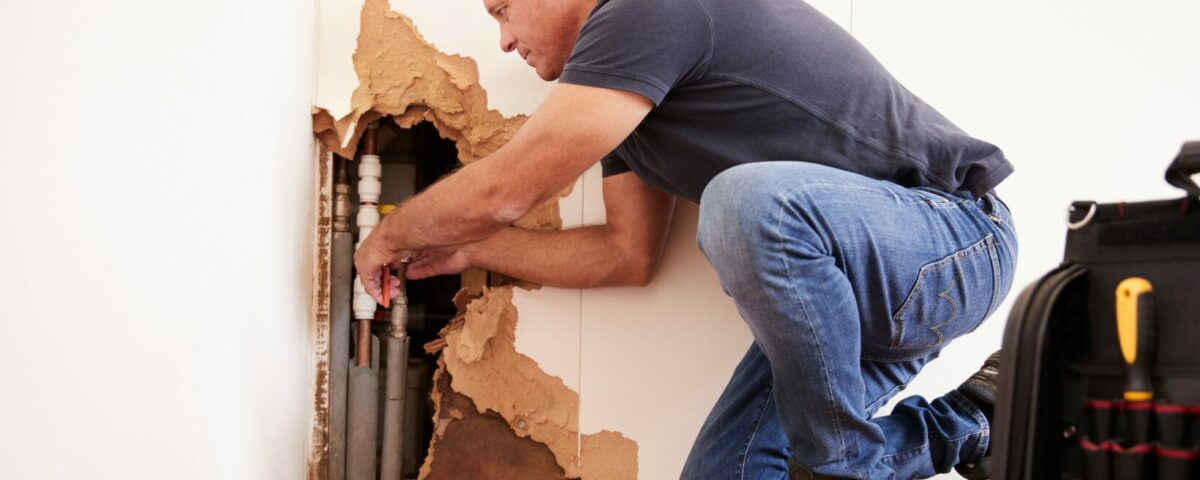- Walk-in Traffic is by Appointment Only - More Details
Property Manager vs. Self-Manage

10 Ways to Reduce Turnover and Maximize ROI in Charlotte Rentals
October 9, 2025
Best ZIP Codes to Invest in Charlotte
October 30, 2025Here’s What Self-Managing Actually Costs You
Every landlord in Charlotte has a story about losing an entire Saturday to meet a plumber or juggling calls from prospects during their lunch break. Even if your rental in Steele Creek, University City, or Matthews stays occupied year-round, small administrative tasks pile up quickly.
Answering inquiries, scheduling showings, running background checks, preparing leases, chasing late rent, coordinating cleanings, documenting inspections, filing 1099s, and responding to tenant texts all take time. Most self-managing owners in Charlotte easily burn 5–8 hours each month, and that’s when everything goes smoothly.
If you value your time at $100 an hour, that’s $500–$800 monthly in unpaid labor. One turnover increases hours, erasing any savings from avoiding management fees and sacrificing weekends.
Let’s go into the details about the true cost of going solo in the Queen City and why many investors opt to hand over their properties to professionals.
Legal Hurdles
North Carolina is considered landlord-friendly, but it’s not “paperwork optional.” Every eviction must go through the Summary Ejectment Court, no shortcuts, no self-help lockouts. Filing costs about $96 in Mecklenburg County plus $30 per tenant for sheriff service, and you’ll spend hours gathering evidence and attending hearings.
One missing signature or an incorrect service address can delay your case by weeks. That’s not theoretical; it happens constantly. And each delay adds another week of unpaid rent. If your property rents for $1,900 a month, every week lost costs about $475.
Then there are state rules on security deposits, notice periods, and late fees. One error, such as returning a deposit two days late, can land you in court for double damages. A property manager automatically tracks every timeline, protecting your investment from the kinds of small mistakes that turn into costly lessons.
Vacancy
Vacancy is the most expensive bill you’ll never see on paper. The average Charlotte rent sits around $1,650 per month, or roughly $55 per day. If it takes you 10 extra days to prep and market the unit because you’re coordinating vendors yourself, that’s $550 in lost revenue.
A property manager fills vacancies faster because they have established pipelines of screened tenants and local advertising reach. They also know which rent levels actually move units in specific neighborhoods, from Ballantyne to NoDa, and can price accordingly.
DIY landlords often overestimate rent, forcing a “sit” period that erodes returns. Underpricing is just as bad, you fill fast but lose hundreds monthly. Professional managers track current Charlotte rent comps and seasonal demand, reducing both risk and downtime.
Vendor Costs
The cost of living and labor has surged across the Carolinas. Handymen now charge $75–$120 per hour, plumbers $100–$200, and electricians $90–$150, often with a $100–$200 minimum service fee just to show up. HVAC companies average $150–$250 per diagnostic visit, and even a basic move-out cleaning typically runs $300–$400.
Because individual owners only call sporadically, they pay retail rates and wait longer. Property managers, however, maintain relationships with vetted local vendors who prioritize their work and discount prices for steady volume. That difference adds up, especially during turnovers when multiple trades are involved.
One example: a solo landlord in Cotswold might spend $1,200 on paint, repairs, and cleaning between tenants. The same work through a management vendor network could cost $800 and be finished days faster. Multiply that savings across a portfolio, and the benefit becomes obvious.
The Real Math of Self-Managing
Let’s do a quick Charlotte-based scenario.
You own a 3-bedroom rental in 28273 that rents for $1,900 a month. You handle everything yourself. Here’s what an average year looks like:
- 6 hours of management work per month = 72 hours annually. Valued modestly at $100/hr = $7,200 in time.
- Two service calls (HVAC + electrical) = $500 total.
- One turnover with cleaning, paint, rekeying, and minor repairs = $1,200.
- Ten days of vacancy waiting on vendors and showings = $633 in lost rent.
Total annual “cost” of self-managing: $9,533.
Now compare that with a professional property management plan at 8% of collected rent, or $1,824/year. Even factoring in leasing and renewal fees, you’re still thousands ahead, and you’ve reclaimed 70+ hours of your life.
Charlotte’s Ever-Changing Compliance Landscape
What many owners underestimate is just how fast local rules evolve. Mecklenburg County’s housing codes and North Carolina’s landlord-tenant statutes are updated regularly. New discussions about short-term rentals, evolving eviction filing timelines, and fair-housing enforcement all affect landlords.
A property manager ensures leases, notices, and practices are compliant by properly filing Summary Ejectment, documenting inspections with timestamped photos, and maintaining compliant tenant communications. This not only complies with policy but also provides legal protection in the event of disputes.
The Emotional Cost You Can’t Quantify
Owning property should be rewarding. But it’s hard to enjoy the upside when you’re constantly worried about whether your tenant paid rent, whether your cleaner showed up, or whether your lease clause will hold up in court.
Charlotte’s property managers handle all of that, so you don’t have to. They keep tenants happier (and longer), catch maintenance issues early, and absorb the stress that otherwise bleeds into your evenings. For many owners, that peace of mind is worth as much as the cash flow itself.
Need Professional Help?
In Charlotte, “saving” the management fee often means paying more just in different ways. You’ll spend more on vendors, more on vacancy, and far more of your own time keeping up with compliance and coordination.
So, before you decide to self-manage your rental, run the numbers honestly. Then ask yourself one question: would you rather manage a property or own one that performs?
Compare against our management plan. We’ll calculate your real costs, time, vacancy, maintenance, and compliance, and show you how professional management can turn your property into a true passive investment instead of a part-time job. Contact us to get started!







